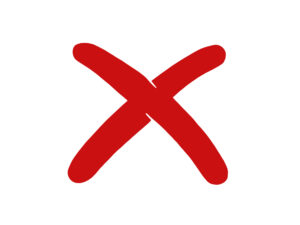Is Puma an ethical brand?
Puma has been rated and researched by The Good Shopping Guide for 15 criteria relating to the Environment, Animals and People. It features on our Shoes & Trainers: Ethical Comparison Ratings Table, and has unfortunately not yet met our Ethical Benchmark. Therefore, Puma is not yet eligible for Ethical Accreditation from The Good Shopping Guide; we still encourage this brand to apply, as it would receive tailored advice on how to improve its Ethical Rating.
If you want to read more about the Shoes and Trainers industry and the ethical issues it faces, see our comprehensive sector guide.
About Puma
Puma SE, also known as PUMA, is a global German company with headquarters in Herzogenaurach, Bavaria, Germany. It creates and produces athletic and casual footwear, clothing, and accessories. The third-largest sportswear producer in the world is Puma. Rudolf Dassler created the company in 1948. (1898–1974). Rudolf and his brother Adolf “Adi” Dassler founded Gebrüder Dassler Schuhfabrik together in 1924. (Dassler Brothers Shoe Factory). The two brothers’ relationship deteriorated to the point where they decided to part ways in 1948 and create two distinct companies, adidas and Puma.
The brothers divided the company in 1948 as their opinions on how to run it became more and more divergent. To establish his own business, Rudolf relocated to the other side of the Aurach River. Adolf founded his own business under the name Adidas, which he created by combining his nickname, Adi, and the first three letters of his last name, Das. Because Rudolf and Dassler both begin with the letter “Ru,” Rudolf established a new company he called “Ruda.” Rudolf’s business changed its name to Puma Schuhfabrik Rudolf Dassler a few months later.
After the split, a ferocious and intense competition developed between Puma and adidas. The town of Herzogenaurach was divided on the subject, earning it the moniker “the town of bent necks” since residents kept their heads bowed to check the footwear of outsiders.
Nowadays, Puma is endorsed by athletes and celebrities and is known for its fashion shoes as much as its sportswear.
Is Puma environmentally conscious and sustainable?
Puma publishes an Annual Report which contains a Sustainability section. It contains targets in areas such as carbon emissions, renewable electricity, water, and plastic, as well as evidence of progress throughout. There are a satisfactory amount of targets and detailed progress reports, so Puma receives a top rating for its Environmental Report.
However, when it comes to the Sustainable Materials that Puma uses, the brand has not performed so well. Puma does manufacture and sell shoes with uppers made of 20% recycled materials, however, this does not apply to all of Puma’s shoes and is a very small percentage of the actual shoe.
Are Puma shoes Vegan?
Unfortunately, Puma still sells kangaroo leather products (shoes and trainers made with kangaroo skins). Puma also currently manufactures and sells no Vegan shoes or trainers.
Puma’s Human Rights track record
Though Puma receives a good Ethical Rating for its Code of Conduct and is a member of the Fair Labour Association, there are many Human Rights criticisms against this brand.
Due to Puma’s affiliation with Israel and its abuses in Palestine, the BDS Movement and other organisations are asking for a boycott of the company. The Israel Football Association (IFA), which has teams in Israel’s illegal settlements on occupied Palestinian territory, is mostly sponsored by Puma. Additionally, the present and previous Israeli exclusive licensees of Puma conduct business in unauthorised Israeli settlements. In order to make space for these settlements, Israel’s military occupation uproots Palestinian families, including children, from their homes. International law regards Israeli settlements as war crimes. Puma has been urged to cancel the sponsorship agreement and stop backing Israel’s unlawful land seizures by more than 200 Palestinian sports organisations.
Researchers claim to have discovered signs of Xinjiang cotton in shirts and T-shirts produced by adidas, Puma, and Hugo Boss. This appears to go against the German apparel brands’ vows to review their supply chains in response to claims of rampant forced labour in the Chinese region. According to recent allegations, more than 500,000 members of underrepresented ethnic groups, including Uyghurs, may have been forced to pick cotton in Xinjiang, which produces more than 80% of China’s and a fifth of the world’s cotton.
How could Puma improve its Ethical Rating on The Good Shopping Guide‘s Shoes & Trainers: Ethical Comparison Ratings Table?
To improve its Ethical Rating and see its position rise on our Ratings Table, Puma should address the Human Rights criticisms and stop its sourcing of cotton from the Xinjiang region. Additionally, it should reconsider its affiliation with Israeli football teams on illegally settled land.
If your shoes and trainers brand values ethics and sustainability, why not check out The Good Shopping Guide‘s Ethical Accreditation? Increase customer and investor confidence and stand out from the greenwash.
Ethical performance in category
GSG score
GSG category benchmark
Ethical Rating
Environment
-
Environmental Report
Good
-
Nuclear Power
Good
-
Sustainable Materials
Poor
-
Fossil Fuels
Good
Animal
-
Animal Welfare
Poor
-
Vegan Options
Poor
People
-
Armaments
Good
-
Code of Conduct
Good
-
Political Donations
Good
-
Ethical Trading Schemes
Good
-
Human Rights
Poor
-
Human Rights+
Poor
Other
-
Ethical Accreditation
Poor
-
Other Criticisms
Good
= GSG Top Rating = GSG Middle Rating = GSG Bottom Rating
